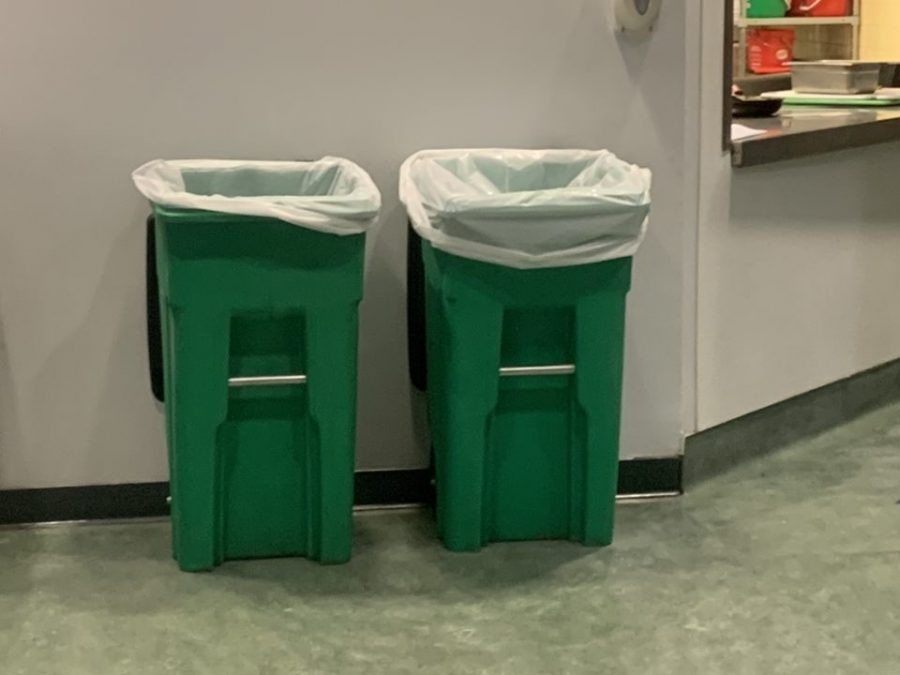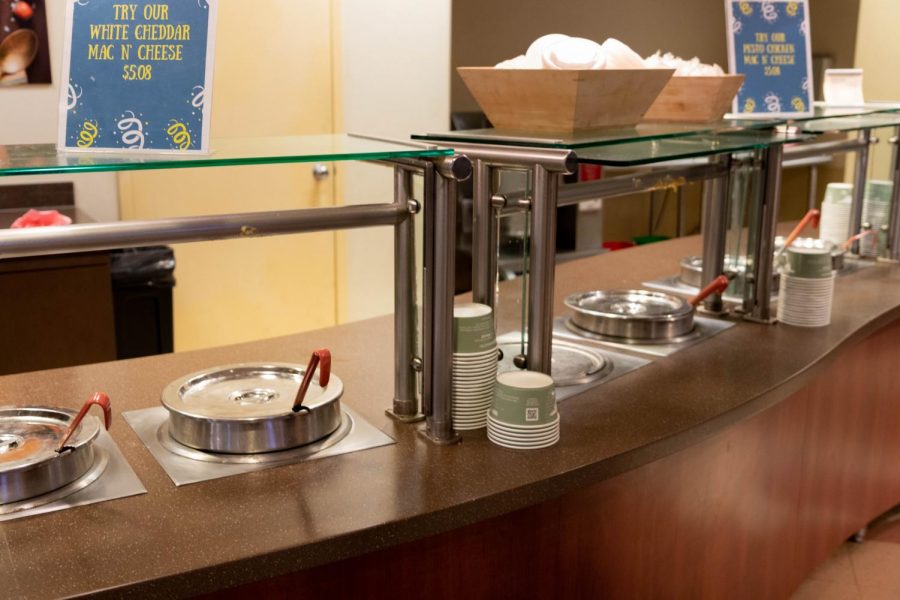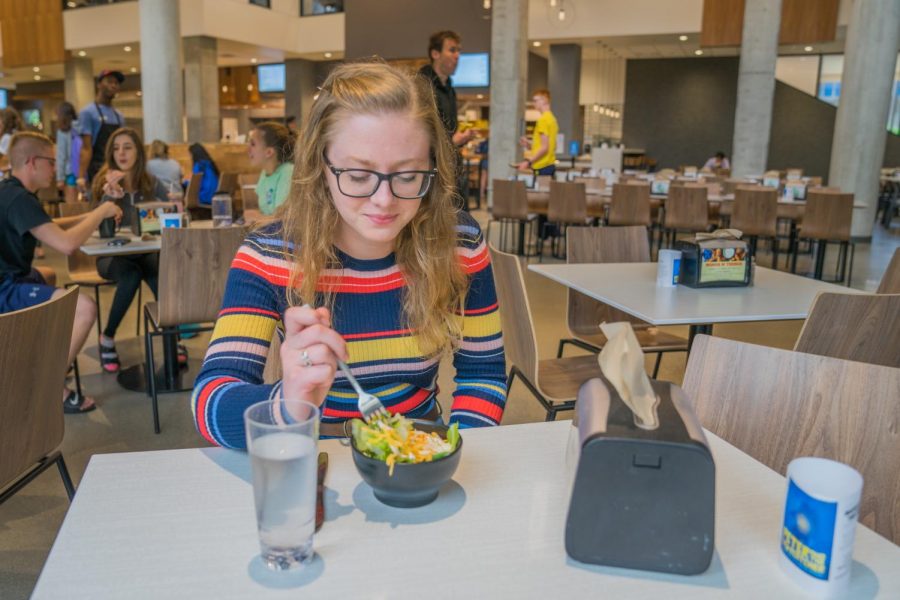This editorial is part of an Opinions series called “One Planet, One Home.” In honor of Earth Day this year, we are taking a moment to draw attention to and discuss different environmental issues facing our local communities and our planet.
As we continue to address climate change and other environmental issues like pollution and waste in our day-to-day lives, it is necessary that students at Marquette University do their part to be more environmentally aware on campus.
Since the beginning of the 2020-2021 academic year, there has been a lot of trash on campus. According to the Milwaukee Department of Neighborhood Services, the organization has investigated 16,325 garbage violations and orders during 2020 and the beginning of 2021.
Since Marquette is part of the Milwaukee community, we need to take more responsibility for our actions and where we put our trash. We need to do better.
In an effort to keep Marquette’s streets free of trash, student organizations like Students for an Environmentally Active Campus have arranged campus clean-ups to pick-up trash and litter throughout the spring semester.
While SEAC’s efforts are commendable, it is unfortunate that the group has to host campus clean-ups at all.
Marquette students need to be more aware of where they put their trash.
Additionally, we need to remember that we are not the only ones living in this area. Marquette’s campus is surrounded by residential areas where members of the Milwaukee community live. It is wrong and unfair to those living near campus to deal with our trash.
Many of us are not originally from Milwaukee, so it is that much more important that we are conscious of our actions and respect the land that we are staying on during our time at Marquette.
According to Wisconsin First Nations, Milwaukee is built on historical Indigenous lands of the Potawatomi, Ho-Chunk and Menominee tribes. Consistently acknowledging the land we are on could help us be more mindful of how our decisions impact the environment we’re in.
Additionally, if we can view ourselves as guests of Milwaukee, we can better behave like guests and treat Milwaukee respectfully. If we were visiting a friend or a family member, we would not throw our garbage on the floor of their home because that is wrong and inconsiderate. We shouldn’t treat campus streets or areas around apartments that way either.
While littering may just seem like throwing trash on the ground, that piece of trash doesn’t just stay there. According to the U.S. Environmental Protection Agency, littering can contaminate water supplies, harm wildlife and emit toxic chemicals into the environment.
The university can support students’ efforts to be more sustainable on campus through sufficiently informing students about where they can put their waste, the impact of their waste and where their waste goes.
Additionally, in campus buildings like residence halls, dining halls, academic buildings and apartments, Marquette should provide consistent recycling, trash and composting options across all dining halls on campus, as well as proper signage to educate students on how to divide up their waste. Currently, not all dining halls have multiple waste bin options or proper signage.
Before the COVID-19 pandemic, the university had composting options in dining halls around campus as well as a partnership with Compost Crusaders, a composting management group that picks up compost materials from residential areas. Now, however, many dining halls on campus only have a single-waste option, or a single bin, which increases the amount of waste that goes from Marquette to landfills.
Even in the ongoing pandemic, we can still find ways to be sustainable.
Additionally, with the challenges of protecting our health during the COVID-19 pandemic, many Marquette dining halls like The Commons and on the on-campus cafe the Brew have reverted to using more single-use plastic and disposable containers.
This makes having recycling and composting options that much more important during this time, so we can limit the amount of waste we are producing.
Marquette should also work to ensure students have the knowledge to take more sustainable actions, as well as potentially work with the City of Milwaukee to support both Marquette students and Milwaukee community members by making sure there are more waste options near off-campus apartments, such as more recycling bins.
Sustainability at Marquette has not seemed to be a priority in recent years. The university is still invested in fossil fuels and there wasn’t a Marquette sustainable coordinator for the entire 2019-2020 academic school year.
The university must make sustainability a top priority and must instill this mindset in all areas of campus.
Marquette should follow the example of Loyola University Chicago, which is a similar Jesuit institution, for thinking and acting sustainably.
Loyola has numerous sustainable projects in transport, energy, food, waste, water and biodiversity focal areas. For waste, Loyola has an intercampus shuttle bus that runs on biodiesel, which is an alternative fuel source to reduce toxic fossil fuel emissions, a campus-wide recycling program and composting throughout dining halls and gardens. Additionally, Loyola has a commitment to using green cleaning supplies on campus, a battery, ink-jet and small electronics recycling program and has a recycling competition program.
Marquette should consider implementing similar programs to prioritize sustainability as well as engage students to take action in their own lives. Acting more sustainably is a way students can “be the difference.”
And when it comes to striving toward a sustainable lifestyle and greener campus, it only takes the action of one, from not littering to recycling a single-use water bottle, to be the difference.
Editorial topics by the Marquette Wire are decided at weekly meetings between members of the executive board. The editorial is crafted with leadership by the executive opinions editor. The executive board consists of the executive director of the Wire, managing editor of the Marquette Tribune, managing editor of the Marquette Journal, general manager of MUTV, general manager of MUR and nine additional top editors across the organization.












